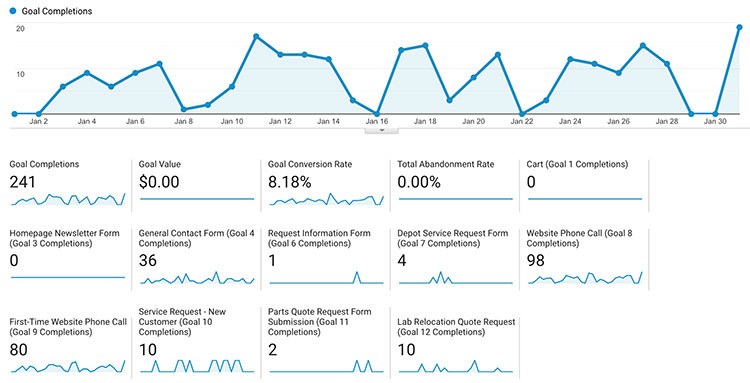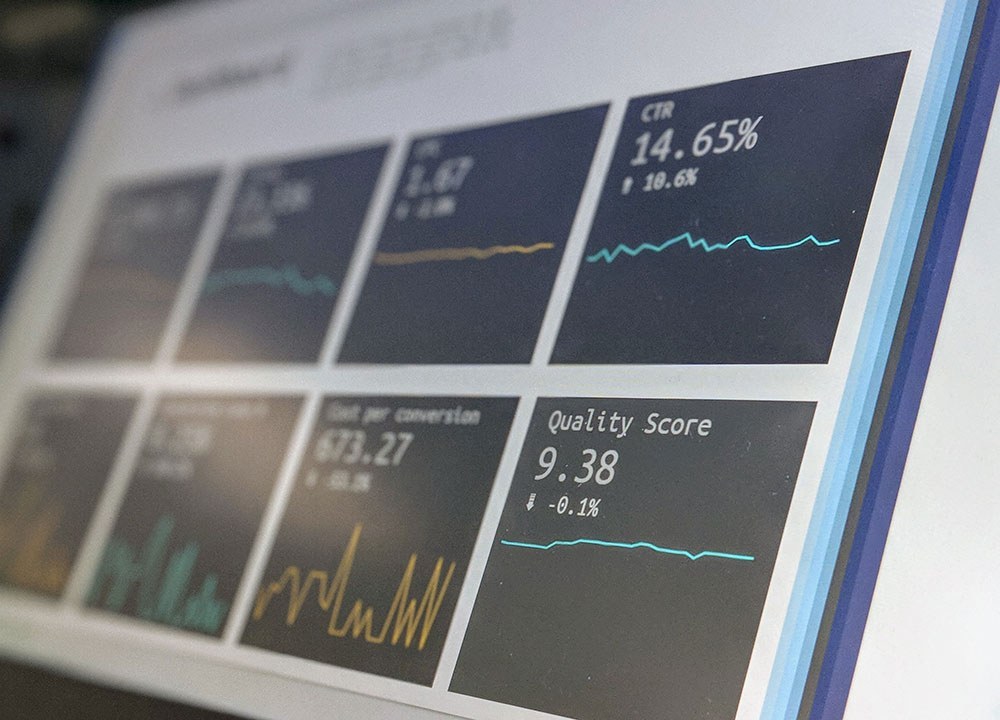What's the Difference Between Conversions and Leads?
Posted on December 13, 2016 Mary Merritt
Those aren't leads, they're conversions.
A lead is only a lead when our customer SAYS it's a lead.
The simple, clear difference between these two terms is qualification. A conversion means that a website visitor took meaningful action on your website (such as filling out a contact form, signing up for your newsletter, requesting a quote, etc.), but does that mean they automatically fall into your ideal customer/buyer profile? There is a whole layer of qualification that happens during the sales process, and if those conversions are of poor quality... then those conversions are actually becoming more of a distraction than anything else. Plus, the low performance of your paid digital programs might be convoluted by large numbers and "fluff reporting." Our first question is: Are we tracking conversions that actually MEAN something to us?
Are we only tracking and reporting on MEANINGFUL conversions?

We were once onboarding a new client, and we decided to first head into their Google Analytics account to see what they were tracking. To say that they were recording the most bizarre conversions would be an understatement. If someone stayed on the website for more than 10 seconds, that was a conversion. If someone visited the booking page (even without making a booking), that was a conversion. The conversion rate of the website was 60%, which is simply unrealistic. When we removed all of the silly conversions, we uncovered a true conversion rate of less than .50%, which leaves a LOT of room for improvement. The industry benchmark is between 3-6%, by the way.
So, what should we do if the conversions are of low quality, and we're not flipping any of them into leads?
This is a big question! There are a few things that can be happening if we are seeing a lot of conversions and none of them are getting qualified into LEAD status. When we are running paid search and display for someone, we will generally (and regularly) ask: "Are the conversions we're sending over QUALITY potentials?" If the sales team is having a hard time qualifying our conversions, then we would look at a few different things:
- Targeting - Are we targeting the right demographics?
- Call-to-Action - Do we have the wrong CTA?
- Geo-Targeting - Are we targeting the right locations?
- Ad Copy - Is our ad copy filtering out the wrong people and enticing the right ones?
- Landing Page - Is our page copy speaking the right language?
- Differentiation - Are we communicating our differences?
There's never ONE THING that contributes to low performance. Doing the detective work and finding out new ways to target and speak to potential customers is part of the learning journey that is paid digital. In order to do detective work, there needs to be an alliance between marketing and sales.
We usually know the conversion rate of the website. What we don't know is the rate from conversion > LEAD.
Some folks don't think it is important for the digital marketing team to have regular communications with the sales team. Well, that is a bunch of ballyhoo! Having full visibility into the qualification rate is important to us, and it helps us know if we are contributing positively to our client organization. We also like to understand the average closure rate. Why? Because we want to know your sales funnel inside and out, and it allows us to do some future budget modeling. Plus, we want a communication avenue to hear about the new and interesting learnings that the sales team has had for the week. In a nutshell, since we work mostly B2B on the digital marketing side of things, our job is to SUPERCHARGE the sales team in any way that we can.

We love helping with attribution tracking so the leadership team knows exactly where leads, contacts, and opportunities are coming from.
This sounds interesting to me. What's next?
It's hard to know what's next - this is a never-ending cycle of learning, applying new ideas, seeing what works, making adjustments, and starting over in some cases. However, knowing the vocabulary will make you a better digital marketing ally. Understanding the difference between a conversion and a lead is important - because you should hold your digital partner accountable for performance. A great digital marketing company will crave that accountability - because facing low performance head-on is necessary for the positive evolution of your paid digital programs. In order to face it, you have to acknowledge it.
Good luck to you, and always reach out if you have questions!

